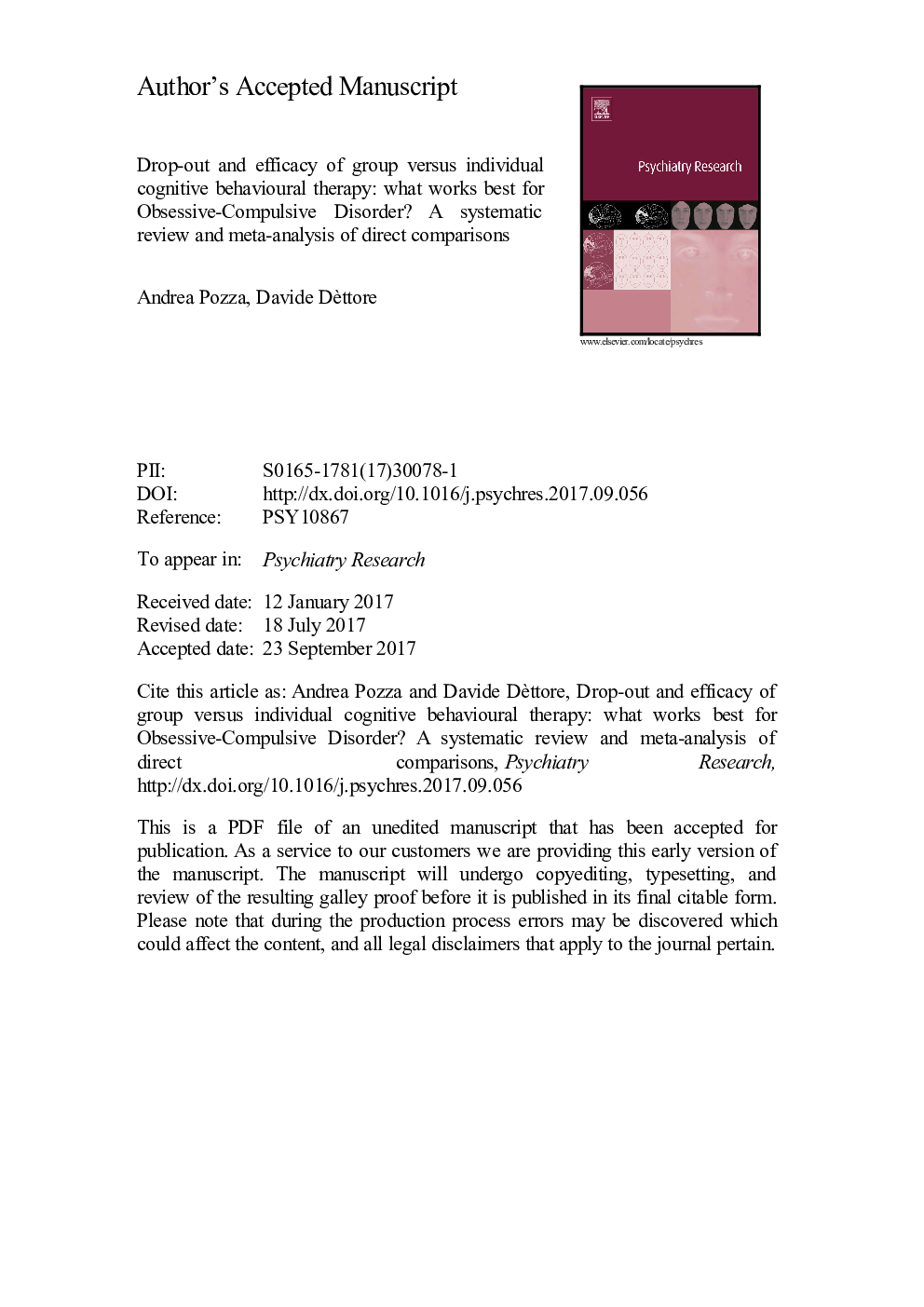| کد مقاله | کد نشریه | سال انتشار | مقاله انگلیسی | نسخه تمام متن |
|---|---|---|---|---|
| 4933236 | 1433788 | 2017 | 29 صفحه PDF | دانلود رایگان |
عنوان انگلیسی مقاله ISI
Drop-out and efficacy of group versus individual cognitive behavioural therapy: What works best for Obsessive-Compulsive Disorder? A systematic review and meta-analysis of direct comparisons
ترجمه فارسی عنوان
از بین بردن و اثربخشی گروه در مقابل درمان فرد شناختی رفتاری: چه کاری برای اختلال وسواسی-اجباری بهتر است؟ یک بررسی سیستماتیک و متا آنالیز مقایسه مستقیم
دانلود مقاله + سفارش ترجمه
دانلود مقاله ISI انگلیسی
رایگان برای ایرانیان
کلمات کلیدی
اختلال وسواسی-اجباری، گروه درمان، درمان رفتاری شناختی، درمان فردی، بررسی سیستماتیک، متاآنالیز،
موضوعات مرتبط
علوم زیستی و بیوفناوری
علم عصب شناسی
روانپزشکی بیولوژیکی
چکیده انگلیسی
Cognitive behavioural therapy (CBT) is the first-line psychological treatment for Obsessive-Compulsive Disorder (OCD). However, a relevant proportion of individuals with OCD remain untreated or inadequately treated. Group cognitive behavioural therapy (GCBT) may be an alternative treatment modality. Little knowledge is available about the efficacy between GCBT versus individual CBT, particularly on long-term secondary outcomes including anxiety and depression. In addition, drop-out rates have not been investigated by previous meta-analyses. The current systematic review and meta-analysis summarized evidence comparing drop-out rates between GCBT and individual CBT and efficacy at post-treatment and follow-up on OCD symptoms, depression and anxiety. A systematic review and meta-analysis according to PRISMA guidelines was conducted. Online databases were searched. Studies were included if using randomized designs comparing GCBT versus individual CBT. Six studies were included (n = 327). No difference was found between GCBT and individual CBT on drop-out rates with a medium non-significant effect. No difference resulted at post-treatment on OCD symptoms, depression, and anxiety. Analyses on a smaller number of studies indicated no difference at follow-up. Findings provided preliminary evidence that GCBT can be as effective as individual CBT. Further trials are required with higher quality and long-term assessments of quality of life.
ناشر
Database: Elsevier - ScienceDirect (ساینس دایرکت)
Journal: Psychiatry Research - Volume 258, December 2017, Pages 24-36
Journal: Psychiatry Research - Volume 258, December 2017, Pages 24-36
نویسندگان
Andrea Pozza, Davide Dèttore,
